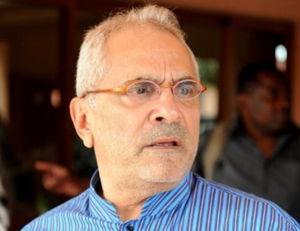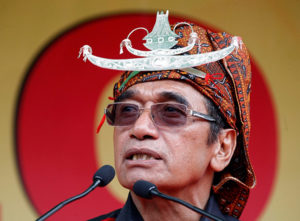Asia Pacific Report newsdesk
Timor-Leste’s citizens voted for a new president at the weekend, hoping the most competitive election in the history of the Asia-Pacific’s youngest country will end a protracted political impasse, reports France 24.
Voters lined up outside polling stations at the crack of dawn on Saturday to choose between a record 16 candidates led by two revolutionary heroes in incumbent Francisco “Lu-Olo” Guterres and former president and Nobel Peace Prize laureate Jose Ramos-Horta.
Three days on, the official result is yet to be announced, but appears to be headed for a run-off vote next month with president Ramos-Horta well in the lead, ahead of Guterres, the candidate of the party that led Timor-Leste to independence, Fretilin.
- READ MORE: Ramos-Horta on brink of claiming presidency in East Timor elections
- Timor-Leste vote highlights young nation’s political impasse
- East Timor chooses new president amid political deadlock
Although Ramos has more than double (46.58 percent) the vote of Guterres, the lead is still short of the needed 50 percent and a second round of voting is expected to be declared for April 19 with the other 14 candidates dropping out.
The winner will take office on May 20, Timor-Leste’s 20th anniversary of the restoration of independence from Indonesia, which invaded and occupied the former Portuguese colony for 24 years.
Following temperature checks and hand sanitisation on election day, voters were ushered to the polling booths where they dabbed their fingers in ink to show they had voted.
Several mothers carrying babies were among those eager to elect a new president.
“I hope the leader that I have voted for can pay more attention to the education, infrastructure and farming sectors. I am very happy that I’ve voted for a candidate based on my consciousness,” 35-year-old Filomena Tavares Maria told AFP news agency outside the polls that opened at 7 am and shut at 3 pm.
Struck by Cyclone Seroja
First hammered by the covid-19 pandemic, Timor-Leste’s economy took another hit last year when Cyclone Seroja struck, killing at least 40 people on its half of the island and transforming communities into wastelands of mud and uprooted trees.

Political tensions between the two largest parties — Guterres’ Revolutionary Front for an Independent East Timor (Fretilin) and the National Congress of the Reconstruction of Timor-Leste (CNRT) — have also risen in the past four years, leading to a political deadlock that has seen the government fail to pass a budget.
Sidalia dos Santos said she hoped the new president could lead an economic recovery.
“I hope the candidate that I voted for can improve our lives, especially in the health and education sector,” the 22-year-old student said.
Outside the polling station, Ramos-Horta said the financial situation would be his main priority: “The most important thing for me is to strengthen the stability and build a better economy”.

Earlier in the week, he said he felt compelled to return to politics because Guterres had “breached the constitution” and overstepped his presidential role.
But Guterres, a 67-year-old former guerilla fighter, said he was confident the elections would bring him a second term.
“I believe I will win this election and people will reconfirm their rights through the election. If I am re-elected, I will keep defending the democratic rights of our country and create sustainable development.”
This content originally appeared on Asia Pacific Report and was authored by APR editor.
APR editor | Radio Free (2022-03-23T03:02:02+00:00) Two key Timor-Leste revolutionary heroes forced to presidency run-off. Retrieved from https://www.radiofree.org/2022/03/23/two-key-timor-leste-revolutionary-heroes-forced-to-presidency-run-off/
Please log in to upload a file.
There are no updates yet.
Click the Upload button above to add an update.